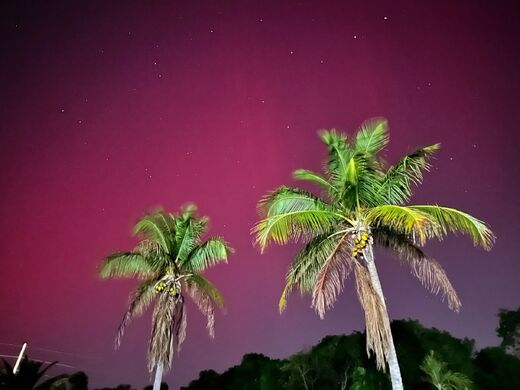
Are environmentally conscious consumers getting what they pay for when they buy ecolabeled fish? Maybe not, according to a new study of Chilean sea bass bearing the label of the Marine Stewardship Council (MSC), which gives seafood products its stamp of approval. Nearly one in five fillets sampled by the researchers may not have been sustainably caught.
"The high rate of mislabeling revealed in this study could potentially undermine MSC's reputation as the gold standard for environmentally friendly fishing," says Lars Gulbrandsen, a researcher at the Fridtjof Nansen Institute in Lysaker, Norway, who studies eco-certification. The sample size is quite small, however, so it is difficult to know the extent of the problem.
Chilean sea bass is popular for its white, oily flesh that is easy to cook. Also known as toothfish (Dissostichus eleginoides), many of these fish are caught off Patagonia, where the stocks are threatened by overfishing. In 2004, companies that operate farther south, around South Georgia Island, received MSC certification as being environmentally friendly. The certification depends on a host of factors, such as not overfishing and reducing bycatch - the accidental killing of birds , turtles, and other animals. This seal of approval gives the industry access to more supermarkets and a premium price.
To earn consumer trust, MSC demands that the "chain of custody" from boat to market be tracked. They require fishers to tag fish and third parties to perform inspections and audits. For toothfish, "it's the most rigorous chain we know of," says Amy Jackson, MSC's standards director.
In 2008, MSC commissioned DNA testing of three certified fisheries: Alaskan salmon, Alaskan pollock, and toothfish from South Georgia. Last year, a summary of the findings reported that all 240 samples from four countries had been correctly labeled.
However, molecular geneticist Peter Marko of Clemson University in South Carolina and several colleagues have found several irregularities. Posing as consumers, they bought single fillets of MSC-certified toothfish from supermarkets in 10 states across the United States. Then they looked at short genetic markers to identify the species. Three of the 36 fish samples turned out to be tuna, greenling, and mackerel, the researchers report online today in Current Biology. When they examined DNA markers of the 33 actual toothfish, five of these fish had markers that differed from those of fish caught near South Georgia Island. All told, 22% of the samples appeared to be something other than MSC-certified toothfish. "I was stunned," Marko says. The trouble with selling consumers something other than what they want is that it can erode trust in the MSC brand, says Gulbrandsen, which is intended to generate profits that lessen the environmental impact of fisheries.
Several uncertainties remain. Given that just 36 fish were sampled, it is difficult to know for sure whether the proportion of mislabeled species - 8% in this study - is truly representative. There is also uncertainty about how to interpret the genetic markers that indicate whether a toothfish was caught around South Georgia Island. Although two of the certified fillets had markers suggesting they were from Patagonian waters, another three had markers not known from either Patagonia or South Georgia Island. This could be because those markers haven't been found in South Georgia yet, but Marko thinks it's more likely that the fish were caught elsewhere, such as the South Indian Ocean.
Rob Ogden of TRACE Wildlife Forensics Network, a nonprofit in Edinburgh, U.K., conducts DNA testing for MSC and says more research is needed. "We need to characterize the system better if we're going to make conclusive statements."
Jennifer Jacquet, the first author of a high profile critique of MSC's certification process last year, says the finding reinforces her concerns. "This is one more piece of evidence that their reputation isn't what they claim," says Jacquet, a postdoc at the University of British Columbia in Canada who was not involved in the study. In order to avoid contributing to overfishing, Marko says that he won't eat toothfish until the extent of the mislabeling is better known; to be on the safe side, he buys species that remain relatively plentiful, such as farmed catfish and Alaskan salmon.
In a statement, MSC said it was "very concerned" about the new findings. Amy Jackson, MSC's deputy director of standards & licensing, adds that any mislabeling of MSC-certified products is unacceptable. MSC has begun an investigation of the mislabeled fish and will review the audit trail for the supply chain. "If we find a problem, we will crack down very hard," Jackson says. MSC also plans to do more extensive DNA testing of toothfish to better quantify the rate of mislabeling.



Reader Comments
to our Newsletter